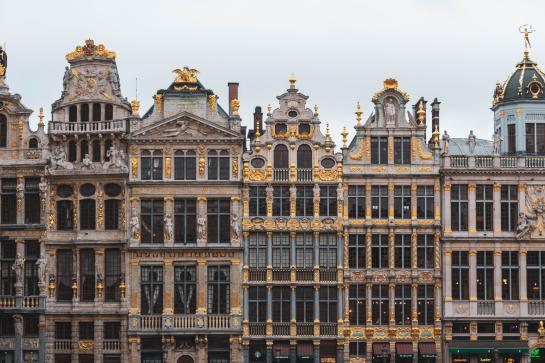
Call for Contributions: Writing Brussels
Edited by Daniel Acke & Elisabeth Bekers
(Centre for Literary and Intermedial Crossings - Vrije Universiteit Brussel)
Writing Brussels aims to consider how Brussels has been imagined in literature, theatre, film and other media in different language areas and artistic currents since the 19th century. It is intended as an anglophone sequel to Brussel schrijven/Écrire Bruxelles (ed. D. Acke & E. Bekers, VUB Press 2016), a scholarly essay collection in which the Belgian capital is explored from a wide variety of perspectives. The following topics, based on the earlier book, may serve as inspiration for the various formal and thematic aspects that could be addressed in the scholarly contributions to Writing Brussels:
a. genres and other formal aspects: the relation between the imaginings of Brussels and
- artistic currents: from romantic to postmodern Brussels, with corresponding themes (see b.);
- generic specificities: Bildungsroman, crime novel, (street) poetry, essay, diary, witness report, letter,
chanson, comic, play, film, radio, written press, ...; - intermediality: text & urban photography, music, visual art, ...;
- translation and multilingalism: Brussel, Bruxelles, Brussels, Brüssel, Bruselas, ... in literary translation,
in multilingual works;
b. themes: the imagination of Brussel in relation to specific urban themes or the history of Brussels, such as
- Brussels as attraction pole for diversion and temptation, and associated social practices (flânerie,
nightlife, queer scene, ...) and places (theatres, cinemas, dance halls, cafés, brothels, ...); - Brussels as site for social and cultural diversity: city of contrasts, palimpsest, multilingual and
multicultural metropolis, ...; - Brussels from the perspective of the Other (the exiled, the migrant, the foreigner, the traveller, the
tourist, ...), the city as place of refuge, as catalyst for reflections on identity, ...; - Brussels as melting pot of political, philosophical, literary and artistic ideas: the Enlightenment revolution, Belgian politics, freemasonry, academic life, avant garde, collaboration between local and
foreign writers/artists/publishers, ...); - Brussels as centre of power (Belgian/European capital, colonial centre) and its emblematic
topographies (the European quarter, royal locations, ...); - Brussels as witness to or representation of the broader historical context (revolution, struggle for
independence, occupation, resistance, persecution of the Jews, ...), of urban/societal customs and morals, of a Brussels identity (“bruxellisation”, the absence of a mythical identity, ...), as utopia/dystopia, ...
Enquiries regarding Writing Brussels and abstracts (300 words) and bios (100 words) by 11 February 2024 are to be addressed to: daniel.acke@vub.be and elisabeth.bekers@vub.be. Selected contributors will be notified by 15 March at the latest and articles in English are expected by 1 July 2024. Author guidelines will be communicated upon acceptance of the abstract. Writing Brussels is designed to be an internationally peer-reviewed publication.
